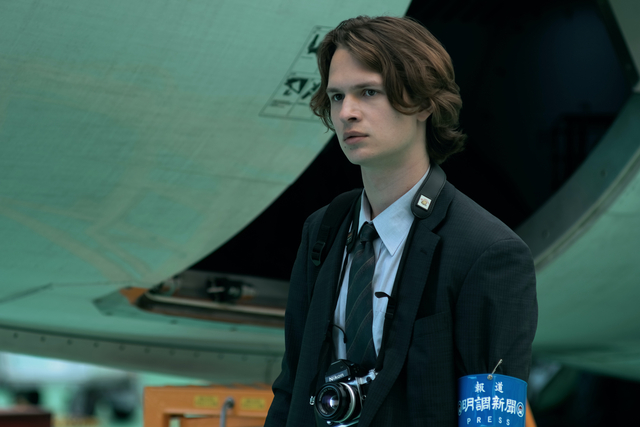
Synopsis : In 1999, American journalist Jake Adelstein has relocated to Tokyo and must pass a written exam in Japanese to have the chance to join the staff of a major Japanese newspaper. He succeeds in becoming their first foreign-born journalist and starts at the very bottom. Taken under the wing of a veteran detective in the vice squad, he starts to explore the dark and dangerous world of the Japanese yakuza.
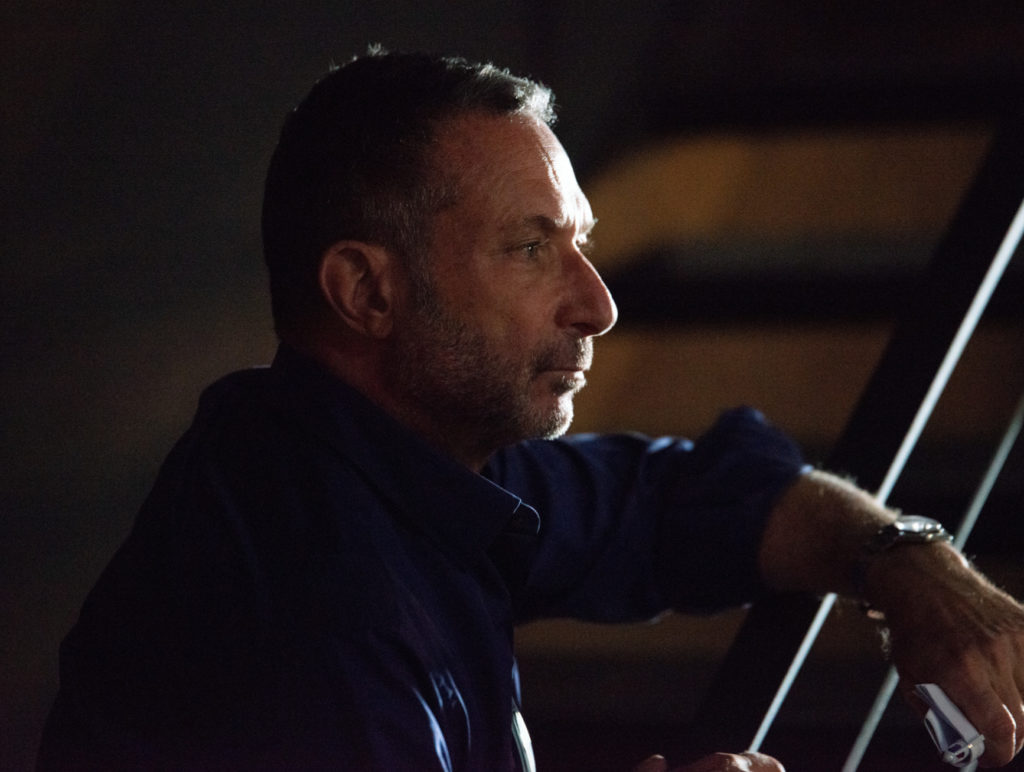
Exclusive Interview with Executive Producer/ Director Alan Poul
Q: When I see a depiction of Japanese culture in Hollywood, it feels like an over-exaggeration or a misuse. You carefully took Jake Adelstein’s book and authentically depicted Japanese and Yakuza culture. How did you approach that?
AP: One of our main missions in making the show was to give an accurate portrait of late ’90’s culture in Tokyo. It’s a mission not easily accomplished by many Western shows that shoot partly in Japan. There are so many details not really explored with an eye towards authenticity, particularly in terms of the relationships between the Japanese characters.
From the very beginning of our show, we made sure that in terms of how we translate the scripts, how we cast it, and all the details on the set, we always had experts nearby. We had an almost all-Japanese crew. We put in the effort and so far, the feedback I’m getting from people is that we’ve succeeded because we’re now starting to show the show in Tokyo.
I’m getting a lot of feedback that people are very impressed with how authentic it’s been. Because I know Japan very well — I’ve lived there — I have just as many Japanese viewers. I’ve watched some — I won’t name any names — but some of the recent American series that take place in Japan are a little painful to watch. The dialogue always feels like Chokuyaku(Direct Translation), like it was just directly translated from the English script. So I’m very proud of all the effort that we put into this.
Q: You studied Japanese in college and also worked as an associate producer for Ridley Scott’s movie “Black Rain” which was also shot in Japan. Of course, shooting a movie and a TV series are different, but as far as shooting in Japan, there’s so many restrictions there. What are the challenges that you faced there, and was it easier to shoot this time?
AP: They all say that things have gotten better since “Black Rain.” On “Black Rain,” we were constantly being shut down. I remember there would be times that Ridley would be in the middle of a shot and a cop would come up and put his hand over the lens of the camera [gestures] like that. It was nearly impossible.
Since then, there’s a Japan Film Commission and a Tokyo Film Commission, and they try to help. But it’s still a very, very challenging place to shoot, especially in Tokyo. It means getting permission to shoot on locations and getting permission to stop any kind of traffic — either by foot or car — takes a lot longer. You have to ask a lot more people, and you never know until the last minute if it’s going to work. But we had a huge and excellent location department, and I’m so impressed with all the work they had to do.
In Japan, if you secure a location and get permission to shoot there, and then the director decides, “No, I’d rather go to this location instead,” there’s a whole bunch of apologies that have to take place. The location manager has to go back to everybody from the place we didn’t shoot and bring them gifts and say, “I’m sorry.” The amount of labor that goes into making it okay to shoot on the street in Tokyo is something that I don’t think — it’s hard for an American viewer to imagine when watching.
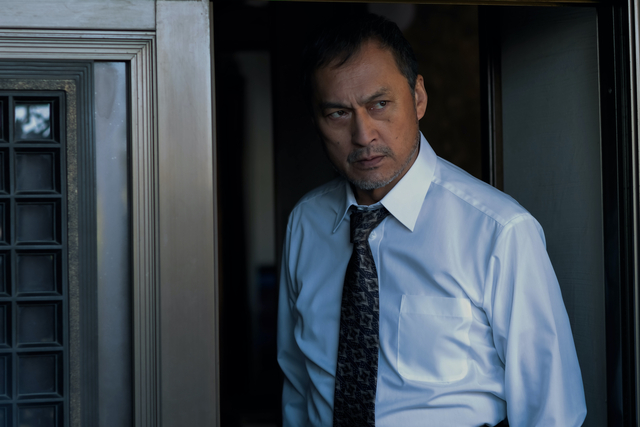
Q: Michael Mann’s direction set the tone of daily life in Japan. You also brought in another director, Josef Kubota Wladyka, who took us into Yakuza life a little bit and another director, Hikari, who shed light on women working in nightclubs. How did you decide to choose those directors, instead of having just one? I think you made the right selection of directors.
AP: Thank you. Normally, when you’re doing episodic television, you usually work with several directors. Like when Josef was directing episodes 2 and 3, that’s when Hikari was preparing episodes 4 and 5, so that while one director is shooting, the next is preparing the casting, finding locations, getting the script right. It’s always a kind of alternating basis.
In this case, we had Josef and Hikari, and then we had me because I did the last episode. Michael was always there to set the tone and direct the pilot, and then the rest of us took over. It was always designed that way. But I’m very glad to see that you understood the different strengths of the different directors. It makes me very happy.
We were a team, and the three of us were always there, in Tokyo the whole time. So if we would be, like, in the middle of a sequence from episode 2 but there was a scene from episode 5 that we suddenly had to shoot, Hikari was also there so she could come in and shoot her scene. We worked like a rotating team and it went very smoothly.
Q: Can you talk about the casting of Ansel Elgort? When you announced that you would make “Tokyo Vice” back in 2013, it was supposed to be a film and Daniel Radcliffe from “Harry Potter” was attached. How did it transition into a TV series and the casting of Elgort?
AP: Yes. John Lesher, one of our executive producers, always had the rights and he was the one making the movie with Daniel Radcliffe. Somehow, through timing or whatever, the movie just never came together.
Now we live in a time where it’s even more difficult to make movies for adults with serious themes. We know that independent film is struggling. Whereas in television, it’s much easier to make a serious story and have the money to make it right, and do something that’s really dense, with dense characters, and good for adults to watch. So it was a natural change to do this as a series, and HBO Max came on board.
Ansel actually came on board very, very early — before I became involved, in fact. So getting the series set up with HBO Max was partly because we had already cast Ansel.
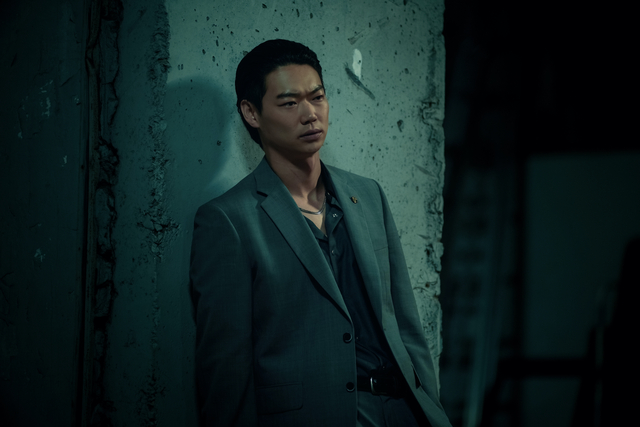
Q: Elgort really blew me away — how he got down and learned to speak Japanese. In order to learn Japanese, you have to learn Katakana, Hiragana and Kanji, which is the Chinese characters. What kind of preparation do you arrange for Ansel to speak so fluently?
AP: When we started, it was 2019 and we were going to be shooting in early 2020. I started Ansel studying Japanese even in New York before he came to Tokyo, But originally, the idea was that he would study basic Japanese and learn his lines phonetically.
The hardest thing for Americans who are trying to act like they speak Japanese is the intonation. Ansel is a musician and a singer, as you see in “West Side Story.” He really studied the intonation of his lines, so even before he understood a lot of Japanese, he was able to speak his Japanese lines convincingly.
Then we got shut down for almost eight months because of Covid, and during the time we were shut down, Ansel just kept on studying. I introduced him to a teacher in Tokyo, a sensei, who was a teacher at the Japanese language school that I graduated from when I was a student. He’s a master teacher; he and Ansel bonded. All during the pandemic shutdown, Ansel studied a couple of hours a day. So by the time we came back to shoot again, his Japanese was at a whole other level.
Q: You cast great Japanese actors like Ken Watanabe, Shô Kasamatsu and Hideaki Itô and Rinko Kikuchi? Why did you focus on Japanese actors instead of Japanese-American actors?
AP: Like I said, the show needed to be authentic so you can’t really cast Japanese-Americans. You need to cast people who have grown up in Japanese culture, because the way they move, the way they talk, it’s very different.
We were fortunate — we put together an incredible cast. A lot of Americans know Ken-san [Watanabe], Rinko-san [Kikuchi], and now everybody’s getting to know Shô Kasamatsu because he’s so great in this show. A lot of our Japanese cast are really incredibly well-known actors in Japan. It’s a very triple A cast and I’m very proud of that. Even if they are not people well-known to American audiences, they bring to their characters a quality to their performances — they have that sense of gravity.
Just as we worked with Ansel and Rachel [Keller], and Ella Rumpf on their Japanese, we also provided a lot of help to the Japanese actors with their English. Shô Kasamatsu didn’t speak English before the show, but he learned everything with us, and he does it really well. The same thing with Shun Sugata who plays Ishida, who has long scenes in English with Ansel. He doesn’t really speak English either. So the actors brought in their skills in learning how to act in another language convincingly.
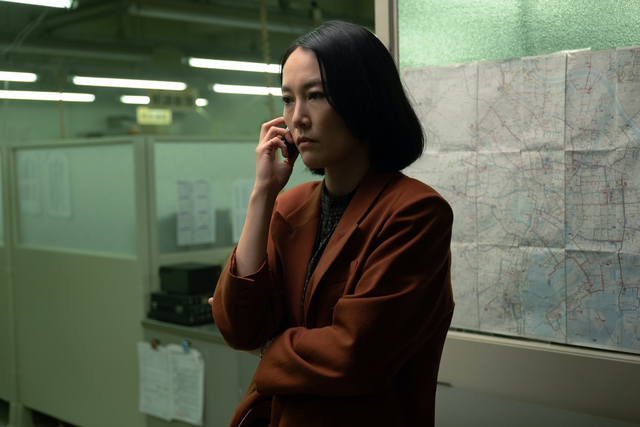
Q: Did you speak to any Yakuza, and if so, were there any stories that fascinated you?
AP: I can tell you this first of all: our company is forbidden by Japanese law from having any direct communication with Yakuza. For a foreign company to have any kind of interaction with an organized-crime group in Japan breaks Japanese law. We couldn’t technically talk to any current Yakuza.
There are a lot of Yakuza who have left the business. So we had several former Yakuza with us as consultants, and they made sure everything was right. But they had to first prove that they no longer had any contact with organized crime.
Q: You depicted the Mizu Shobai women, the traditional euphemism for the nighttime entertainment business in Japan, provided by hostess or snack bars. You show how Yakuza makes money from the night clubs business and through loan sharks.
AP: Yeah, thank you. Mizu-shōbai was so important to us that we even introduced the word in the show. Even in the English dialogue, we refer to Mizu-shōbai as Mizu-shōbai because there’s no other way to describe it. You could say it’s the bar and the night life, but it’s a very specific world and subculture in Japan, and I think we were able to convey that. Once you’re in the Mizu-shōbai, people will think about you a certain way. And also the interconnection between the Yakuza world and the world of Mizu-shōbai.
But we did a lot of research in both hostess clubs, we had a couple of hostess club Mama-sans who were with us on set, helping Rachel and Ella and even also our Japanese actresses to behave in exactly the way a high-end hostess would.
And we also did a lot of research into the host clubs because we have the character of Akira, that Yamapi (Tomohisa Yamashita) plays. We took Yamapi to the host clubs and spent a lot of time talking to all the young male hosts about their world.
Because you can say there’s a kind of equivalent of hostesses in the U.S., but the idea of the host club is a completely alien concept. The idea of these young guys running a club for single women to come in and keep them company is something that we so don’t have here. That was an even harder world to introduce.
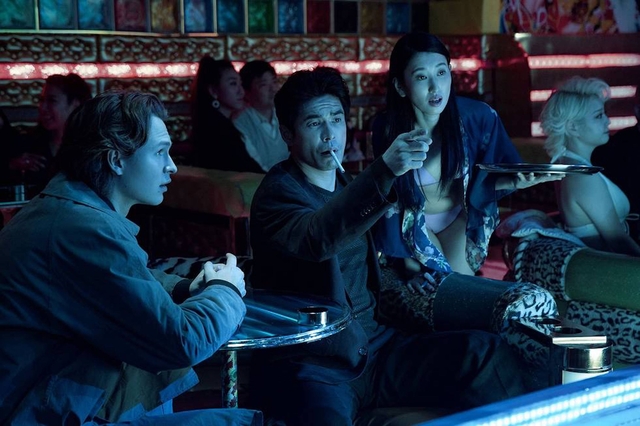
Q: I heard that you shut down the production for like 10 days because of Covid. You spoke of how it benefitted Ansel as he learned Japanese. Were there other advantages or disadvantages?
AP: The big advantage was in Ansel’s being able to learn his Japanese so well. Also, we were able to do more work on the scripts. We only had six days – we only shot six days before we got shut down. But there was also something that seemed like misfortune but ended up working in our favor.
That was because the actor originally cast to play Sato had to drop out when we were shut down by Covid. He’s a very well-known actor in Japan, and he had booked so many things that when we were scheduled to come back and start shooting again in the fall of 2020, there was just no way to make the schedule work. So we had to recast. And we had only shot him in one scene. So we had to find a new Sato, and that’s when we found Shô Kasamatsu. He’s incredible, and I think that our show came out much better because of Shô.
Q: Was it Gô Ayano, a Japanese actor –
AP: You mean who was the original Sato? It was Suzuki Ryohei, and Ryohei is wonderful. He’s a fantastic actor and we love him. But he’s very, very busy so he couldn’t make the schedule work.
Q: What do you want the audience to take away from watching the series?
AP: I want our audiences to feel that they have been given entre into a strange world that is very different from any other worlds they have experienced before. Like, they’ve been given enough information to be comfortable enough in that world, and then to want to be able to come back for another season.
Q: Thank you so much.
Check out more of Nobuhiro’s articles.
Here’s the trailer of the film.

